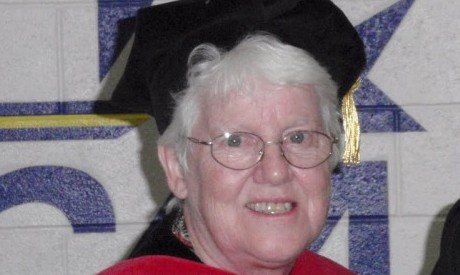When Grace L. Fabian forgave the man who murdered her husband, she was simply following her faith.
She and her husband arrived in Papua New Guinea on the Fourth of July 1969 to work with Wycliff Bible Translators, producing literacy materials and translating the New Testament. They had four children, all born in Papua New Guinea. Mrs. Fabian, 75, returned to the U.S. in 2005 after the Papua New Guinea government ruled it would no longer renew work permits to expatriates age 65 and older.
Until then, she remained in the country despite a tragedy that occurred 20 years ago.
Edmund Fabian, 57, was murdered in 1993 in the study of his house at the Summer Institute of Linguistics at Ukarumpa missions center, in the eastern highlands of the country. He was killed by a blow to the back of his head with an ax. His killer was a Nabak tribe member who had been helping with Bible translation into the Nabak language.
Papua New Guinea is in the southwestern Pacific Ocean, separated from northern Australia by the Torres Strait. The independent country is on the eastern half of the island of New Guinea. The western half of New Guinea island is part of Indonesia.
The Fabians worked in the eastern highlands near the port city of Lae. According to the CIA’s World Factbook, there are 836 indigenous languages spoken in Papua New Guinea, which is a tribal society. Most languages have fewer than 1,000 speakers.
“It’s a linguist’s paradise,” Mrs. Fabian said.
Mr. Fabian was working on Book 1, Corinthians, chapter 13 when he was struck down. It’s also known as the love chapter.
Mrs. Fabian’s love of God guided her next step.
“I didn’t only want to be a Bible translator,” she said last month from her home in Pennsylvania. “I wanted to be someone who would obey the Bible. I could not find any loophole that said, ‘Well, in some cases, you don’t have to forgive people.’ There were no such verses.”
But she added, “I had no idea that in doing that, God was going to take that and make it something grander.” Continue reading
Sources
